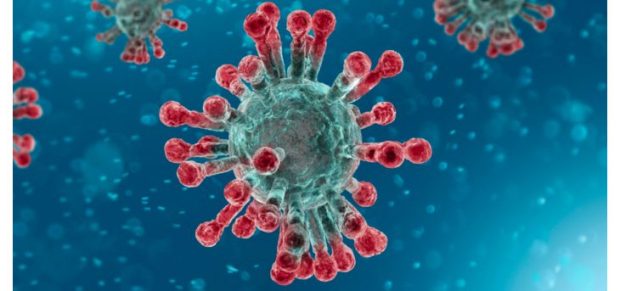
Covid-19 found in raccoon dogs in China, strengthens natural origin theory: Report
PTI, Mar 17, 2023, 2:28 PM IST

Credit: iStock Photo
A new analysis of genetic samples collected from a seafood market in central China’s Wuhan city shows the presence of the SARS-CoV-2 virus in raccoon dogs sold at the venue, strengthening the case for the natural origin of the Covid-19 pandemic, according to a team of international experts.
The New York Times said in a report on Thursday that genetic data was drawn from swabs taken from in and around the Huanan Seafood Wholesale Market starting in January 2020, “shortly after the Chinese authorities had shut down the market because of suspicions that it was linked to the outbreak of a new virus.” The new evidence comes weeks after an intelligence assessment from the US Department of Energy pointed out that an “accidental laboratory leak” from a virology laboratory in Wuhan was most likely the cause of the pandemic.
While the animals had been cleared out from the market, researchers took swabs from the walls, floors, metal cages and carts used for transporting animal cages, the report said.
“In samples that came back positive for the coronavirus, the international research team found genetic material belonging to animals, including large amounts that were a match for the raccoon dog,” it said, quoting three scientists involved in the analysis.
The report noted that after the international team came across the new data, it reached out to Chinese researchers who had uploaded the files with an offer to collaborate.
However, after that, the sequences disappeared from GISAID (Global Initiative on Sharing Avian Influenza Data), it said.
The report said that the ”jumbling together” of genetic material from the virus and the animal does not prove that a raccoon dog itself was infected.
“And even if a raccoon dog had been infected, it would not be clear that the animal had spread the virus to people. Another animal could have passed the virus to people, or someone infected with the virus could have spread the virus to a raccoon dog,” the report said.
“But the analysis did establish that raccoon dogs — fluffy animals that are related to foxes and are known to be able to transmit the coronavirus — deposited genetic signatures in the same place where genetic material from the virus was left,” according to the scientists.
They noted that the evidence was “consistent” with a scenario in which the virus had spilled into humans from a wild animal.
“But the genetic data from the market offers some of the most tangible evidence yet of how the virus could have spilled into people from wild animals outside a lab. It also suggests that Chinese scientists have given an incomplete account of evidence that could fill in details about how the virus was spreading at the Huanan market,” the report said.
The international team included an evolutionary biologist at the University of Arizona Michael Worobey; a virologist at the Scripps Research Institute in California Kristian Andersen and a biologist at the University of Sydney Dr Edward Holmes. They started mining the new genetic data last week.
“One sample, in particular, caught their attention. It had been taken from a cart linked to a specific stall at the Huanan market that Holmes had visited in 2014,” the report said.
That stall contained “caged raccoon dogs” on top of a separate cage holding birds, “exactly the sort of environment conducive to the transmission of new viruses.” “We were able to figure out relatively quickly that at least in one of these samples, there was a lot of raccoon dog nucleic acid, along with virus nucleic acid,” said Stephen Goldstein, a virologist at the University of Utah who worked on the new analysis.
Goldstein cautioned that “we don’t have an infected animal, and we can’t prove definitively there was an infected animal at that stall.” “But given that the animals that were present in the market were not sampled at the time, this is as good as we can hope to get,” the virologist said.
The first coronavirus case was reported in China’s Wuhan Province in December 2019. Globally, there have been 760,360,956 confirmed cases of COVID-19, including 6,873,477 deaths, according to the World Health Organization.
Udayavani is now on Telegram. Click here to join our channel and stay updated with the latest news.
Top News

Related Articles More

China announces new policy measures to protect its exports from Trump’s new tariff threat

Pak government prepares for proposed protest by former PM Imran Khan’s party on Nov 24

Gangster Lawrence Bishnoi’s brother Anmol arrested in US, lodged in Iowa jail

Pakistan to launch comprehensive operation against militants in Balochistan

PM Modi arrives in Brazil to attend G20 Summit on tour’s second leg
MUST WATCH
Latest Additions

Siddaramaiah says confident of winning all three bypolls in Karnataka

Hop on! IT Minister Priyank Kharge checks out Uber Shuttle at Bengaluru Tech Summit

Actress Kasthuri released from jail, says ‘I thank those who made me raging storm’

Kidnapped for ransom in 1998, 26/11 survivor Gautam Adani faces biggest trial

AIMPLB to hold its annual general sessions in Bengaluru from November 23
Thanks for visiting Udayavani
You seem to have an Ad Blocker on.
To continue reading, please turn it off or whitelist Udayavani.




















